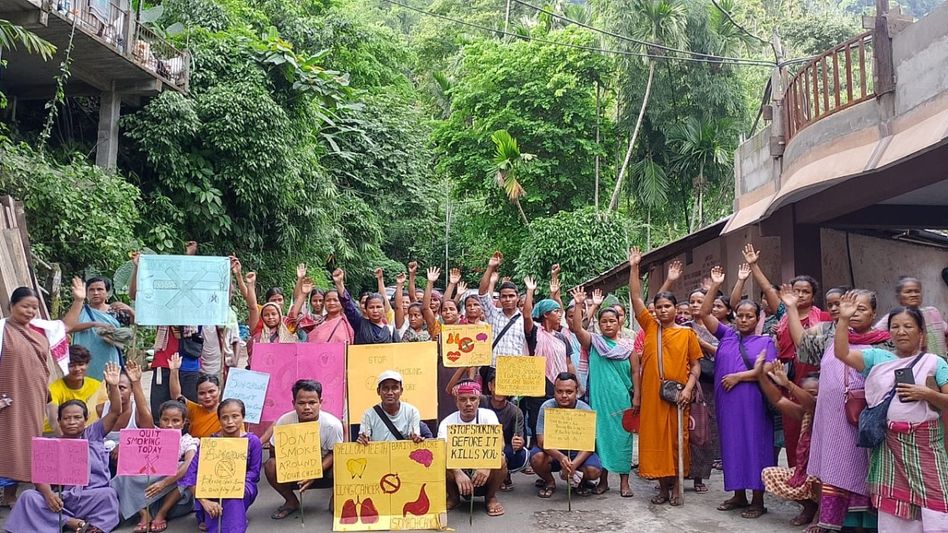Meghalaya becomes first state to achieve community-led tobacco control milestone
264 villages successfully implement tobacco-free initiatives, setting national precedent for grassroots health programs.

Meghalaya has created history by becoming the first Indian state where village communities have successfully implemented large-scale tobacco control measures, with 264 Village Health Councils achieving tobacco-free status through a groundbreaking community-driven program.
The Tobacco-Free Villages initiative, launched in May 2024, represents a shift from top-down health policies to community ownership of public health challenges. Over 1,030 Village Health Councils across East Khasi Hills and West Jaintia Hills districts participated in the program's first year, demonstrating unprecedented grassroots engagement in tobacco control.
The program's success has caught national attention, with the Ministry of Health and Family Welfare incorporating Meghalaya's approach into national guidelines. The state's model informed the ministry's "Standard Operating Procedures for Villages to be Tobacco-Free" released in October 2024.
Central health officials who visited participating villages expressed admiration for the results. Dr. L. Swasticharan, Deputy Director General at the Ministry of Health and Family Welfare, and Dr. Ankita Piplani, WHO Consultant from New Delhi, praised the community-driven approach after touring multiple tobacco-free villages.
The program operates through a structured six-point framework that empowers villages to take ownership of tobacco control. Village Health Councils appoint dedicated tobacco-free nodals, conduct community meetings, secure joint declarations from schools prohibiting tobacco sales near educational institutions, enforce no-smoking rules in public spaces, install awareness signage, and run sustained community education drives.
Villages earn tobacco-free status after completing five of the six prescribed activities with verified compliance—a process that ensures genuine community commitment rather than superficial implementation.
The initiative addresses a critical health crisis in Meghalaya, where approximately 8,000 people die annually from tobacco-related diseases. The program's design draws from established global frameworks including WHO Framework Convention on Tobacco Control articles and CDC best practices for comprehensive tobacco control.
Community members report tangible changes in daily life. Residents note that smoking in homes has dramatically decreased, public spaces have become cleaner, and children enjoy safer environments. One participant shared that the program helped their spouse quit tobacco entirely.
The program's implementation strengthened in early 2025 when Community Gender and Health Activists—village-level workers from the Meghalaya State Rural Livelihoods Society—joined the effort, expanding reach into remote communities.
"With 264 tobacco-free Village Health Councils, Meghalaya is setting a national benchmark for community-owned public health," said Dr Nabaneeta Mawrie, State Nodal Officer for the National Tobacco Control Program.
Abhishek Sunar, project head at Sambandh Health Foundation, the implementation partner, emphasized community ownership: "This success belongs to village leaders and nodals who turned resolutions into reality for the health of their villages."
The National Health Mission Meghalaya developed the program in collaboration with the Meghalaya State Rural Livelihoods Society and Sambandh Health Foundation. The initiative represents a collaborative model between government health systems and community organisations.
As the programme enters its second year, officials plan to expand the model to additional villages while maintaining compliance in existing tobacco-free communities. The success has positioned Meghalaya's approach as a potential template for other states seeking effective community-based tobacco control strategies.
Copyright©2026 Living Media India Limited. For reprint rights: Syndications Today









